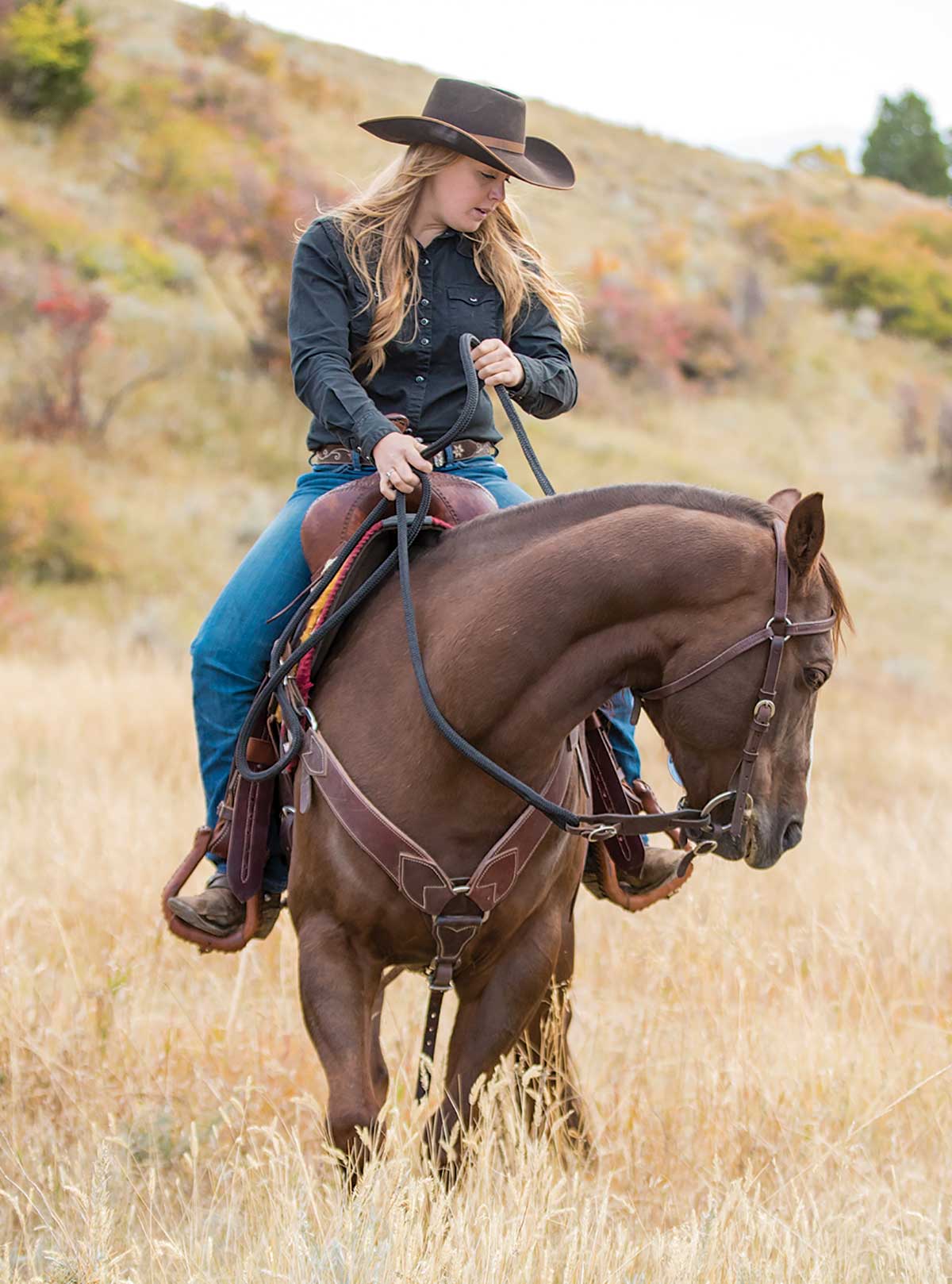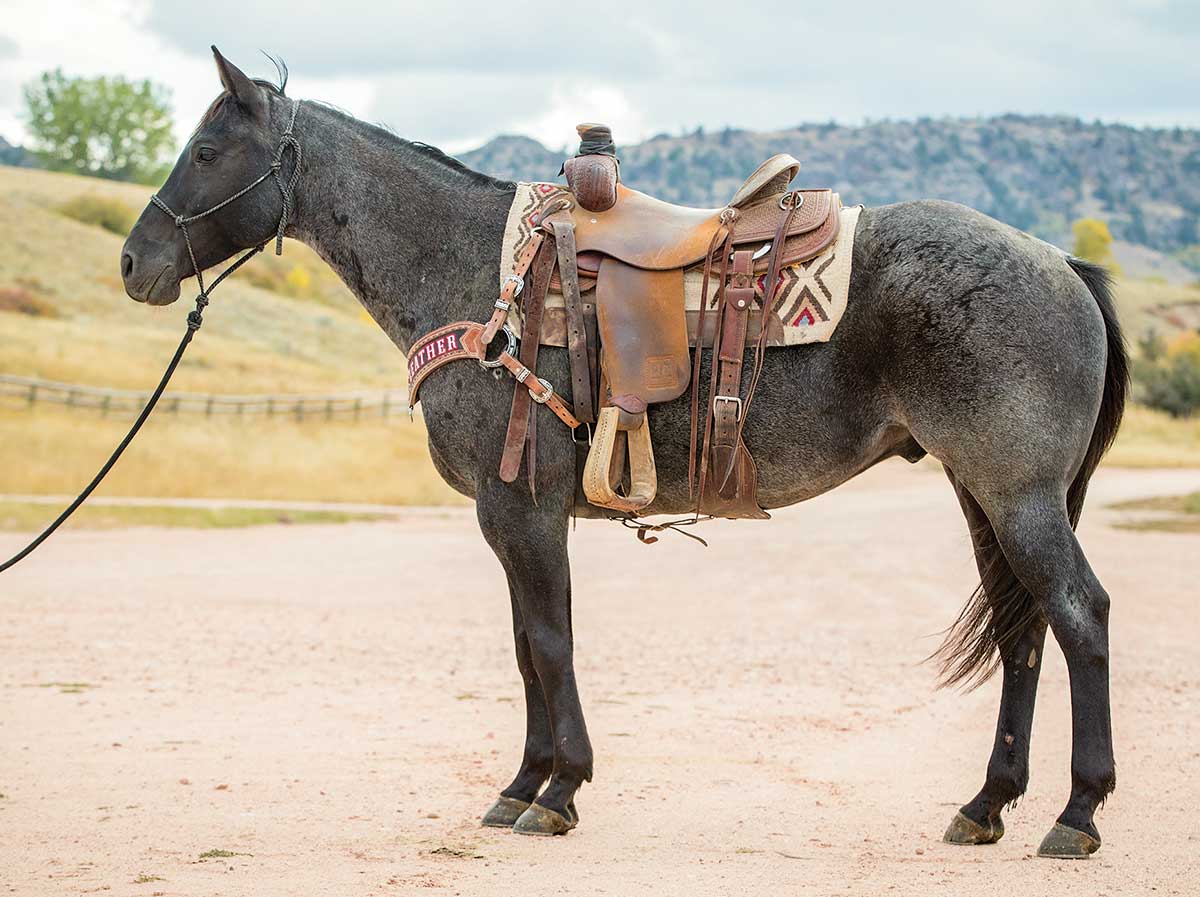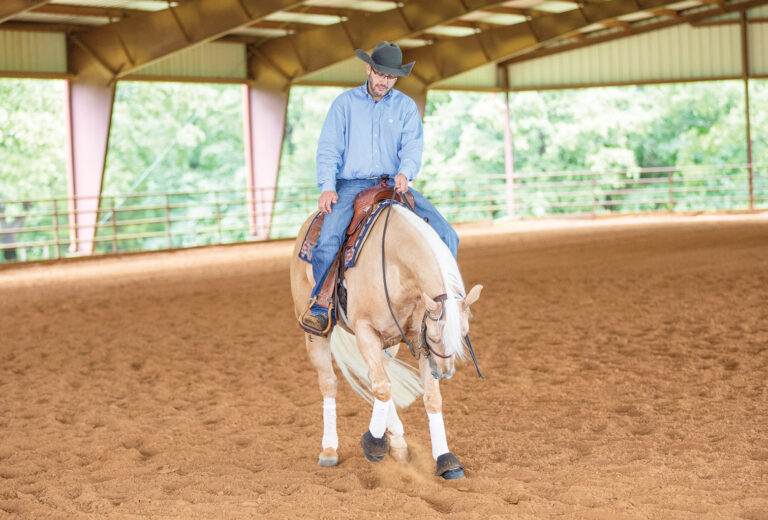
You know what it’s like to ride a horse that acts up, is a spook, or is generally high-maintenance on the trail. Having the right horse can make or break your experience. While any horse can become a trail horse, I’ve found that ranch horses have many transferable skills that make for an easy transition to trail riding.
[READ: RULES OF THE TRAIL]
Here I’ll share the attributes that make ranch horses the ideal trail partners. I’ll first explain the circumstances of a ranch horse’s job that conditioned him for the trail, and then I’ll give pointers to help you look for a prospect. I’ll also share training and lifestyle tips to help him transition.
Built-in Versatility
A ranch horse puts in long hours as a full-time job. To survive the workload, he learns to conserve his energy. He doesn’t prance, pace, or fight the route. Because of this, chances are he’ll handle long, difficult trail rides the same as a ranch-work day, managing his energy through the entire ride. His solid base level of conditioning earned through daily riding make him resilient and easy to leg-up for an adventure.
Many day-to-day demands of the trail come naturally to a ranch horse. He stands patiently while tied to a calf that’s being handled on the ground, so will be similarly easygoing when you’re held up at river waiting for riders to cross. Hobbling and ground-tying will come easily if he hasn’t learned already. He’ll be used to his legs being restricted because he’s been around ropes and will likely have been caught in a loop at least once before.
A ranch horse is exposed to a variety of situations, and encounters surprises almost daily. These experiences teach him to follow active leadership. This means if he’s bringing cattle in and a hung-up tarp spooks him, there’s no option but to work through it. The job teaches him to control his emotions, stay level-headed in a crisis, and look to his rider for guidance. Similarly, if you face something unexpected on the trail, such as a wildlife encounter, rapid change in weather, or an injured horse or rider, he’ll turn to you for instructions.
A ranch horse has mastery of basic maneuvers for safe riding and a diverse set of trail-specific skills. He trail-rides every day as he works cattle, drags steers, and covers diverse terrain. He’s comfortable dragging heavy logs off a path and knows how and where to step going up or down a hill. All you need to do is point him in a direction and let him go. If you choose to branch out into stock horse, versatility, or extreme trail competition, your ranch horse’s well-roundedness allows you to do this.

Cream of the Crop
As you look for a horse, ask questions about his specific ranch duties. Ensure that the seller doesn’t overstate the horse’s proficiency. Ask about factors that’ll matter to you as a trail rider, such as how he comes off of his winter layoff. Is he sound, does he buck, is he hard to catch? If you know you take at least one long trip per year, find out if he’s aggressive toward other horses, which matters if he tries to kick or bite on a highline. Find out how he stands for the vet or farrier in case you need to doctor him on a ride or tack on a thrown shoe.
Know that a ranch horse will have cosmetic bumps and scrapes because he’s been used. Also check for signs of overuse that can mean long-term lameness issues. Look for knocked knees; hard knobs on his withers; hard calcifications on the top of his hips, which suggest kidney sores and cause back discomfort; and ringbone and side-bone. (Search these issues by name on HorseandRider.com for more information.) Find out if he’s been lame before, what caused it, and how he came back. When it comes to purchasing horses, trust your gut, but don’t be afraid to ask a trusted, experienced rider for advice.
Train for Success
There are a few training and riding adjustments to make with a ranch horse depending on what you plan to use him for. Ranch horses are independent by nature. On the trail, you won’t need to micromanage him and control his every move. You can let him self-manage and direct him as necessary. It’s also likely he hasn’t spent much time in a stall. If you choose a ranch horse, know that he’ll need more exercise and turnout than your other horses if he’s confined.
If you plan to compete in a pattern class, such as ranch riding or reining, you’ll want to finish him in the specific discipline. While he has basic training needed for the trail, he won’t be polished or patterned for the show pen. He’s also likely unfamiliar with crowds. Give him time to get comfortable with sights and sounds of an event, and don’t be surprised if he looks around.
[READ: TRAIL RIDING CONFIDENCE]
Trainer, clinician, and lifelong cowboy Ken McNabb hails from Lovell, Wyoming. He helps riders and horses build and enjoy partnerships working on the ranch and riding on the trail. His show, Discovering the Horseman Within, airs weekly on RFD-TV. Learn more about McNabb and find his clinic schedule at kenmcnabb.com.






